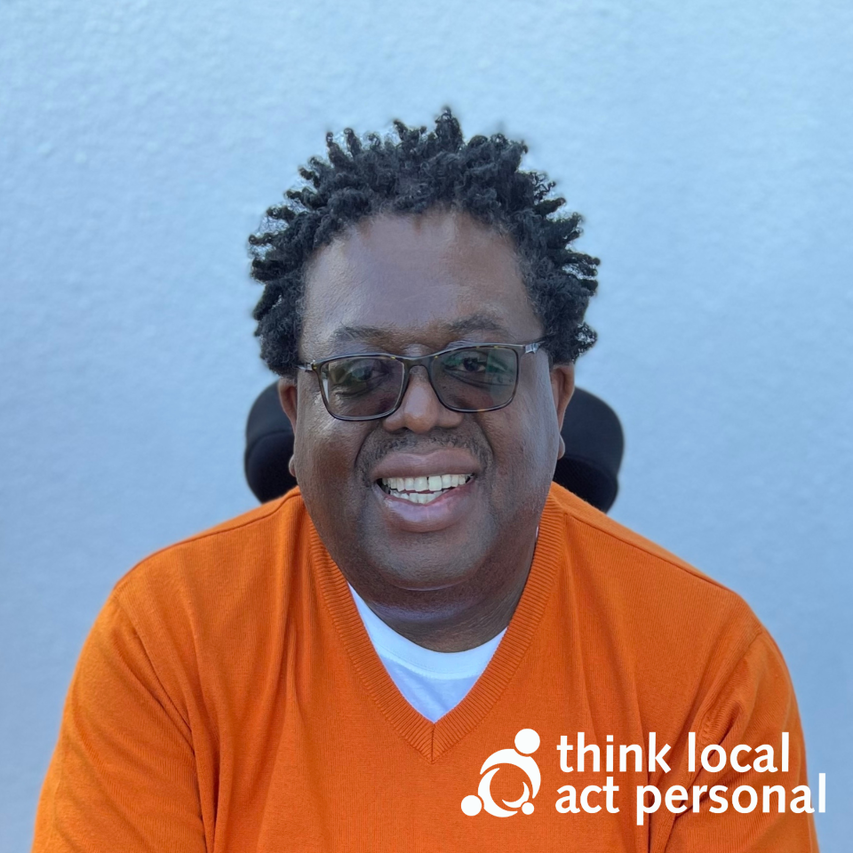Being the director of your own care and support – building the scaffolding of independent living
Clenton Farquharson, our thematic lead for lived experience, shares what personal assistants are and how he approaches recruitment and retention.
My experience as an employer of personal assistants
A lot of my own learning on Personal Assistants (PAs) comes from Simon Brisenden, a pioneer of the Independent Living Movement. Simon saw PAs as a way for disabled people to live independently in the community, supported by people they employ directly, rather than being dependent on family members or care workers in an institution. This rebalances choice and control towards the individual, who as an individual employer, can self-direct their own care and support.
Being independent just means having some control over your life and not living by the routines of others. That’s what independence and having a personal assistant is about – enabling you to have more control over your life.
Independence shouldn’t imply cutting oneself off from the assistance of others. “What matters is not that you do something with or without the help of others, but that it gets done under your direction” (Simon Brisenden).
Despite being around for 45 years, the role of the PA is often misunderstood. As many people imagine it to be like the role of an office PA. Work still needs to be done on the language used, and what the job involves. It needs to be understood within its unique context.
It is essential that disabled people can decide who supports them, at what times, and in which ways. A rebalance to the traditional view of task and time working style is necessary. Some see the view of a PA as just watering, feeding, and getting us out of bed. However, that is only surviving, not thriving. Having a PA should enable us as disabled people to live, as described in a recent House of Lords report on adult social care, a ‘gloriously ordinary life’.
The role of PA is not just about time and task, but about building relationships. My PA has seen some of the most intimate parts of me and I want a relationship that helps me understand that intimacy, and is directed and controlled by me.
Recruiting a Personal Assistant
The key to finding the right PA is recruitment. I work with values-based recruitment. This involves trying to find a common understanding of what we mean by the words respect, dignity, and equality – do we share these values? This is the cornerstone of good recruitment.
I share what is important to me and like to learn about my PAs as people too, and to know how they would feel supporting me in my work, and interests. How would they feel facilitating me to support my local team, Birmingham City? Or as happened recently, how could we work together to resolve a problem like me being stuck on a train on the way to a meeting?
Something I look for when recruiting is someone who is confident to try new things and is up for a challenge, someone who is a problem solver.
Retention of PAs can be an issue, often due to working arrangements and pay. Once I find a PA, I make sure that I do an induction in a way that supports both them and myself. I then look at how I can provide training that enables them to do the job to their best ability. Finally, we talk about what they can expect, as it is essential to be open and honest.
To help with retention, we have monthly meetings to find out what is or isn’t working well. This allows for a “no surprises” approach for both parties.
I think these things are key to building positive working relationships and understanding each other. I am pleased; I’ve had long relationships with my PAs. They are normally with me for 5-6 years. My longest one was with me for 10 years and went on to be a Physiotherapist.
The core element of effective recruitment and retention is good communication, which helps avoid misunderstandings… no surprises.
About Clenton

Clenton is Chair of the Think Local Act Personal partnership board.
He also works as a consultant on social justice, equity, personalisation, and co-production.
Clenton is a member of the NHS Assembly, chair of Quality Matters. He is also a trustee of the Race Equality Foundation and Disability Rights UK.
In 2014, he received an MBE in recognition of his services to people with disabilities.
In his free time, Clenton supports Birmingham City Football Club.
